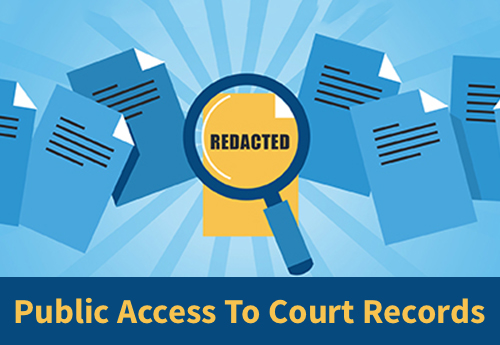
Revised October 15, 2019
The U.S. Department of Labor, Office of Administrative Law Judges ("OALJ") conducts public hearings. 29 C.F.R. § 18.81. A presumption of public access applies to the entire hearing process. Transcripts and documents filed with OALJ are subject to inspection under the Freedom of Information Act regardless of whether those documents are moved into evidence at the formal hearing. The judge’s orders and final decision are published on the agency website unless FOIA exempt.
Parties are responsible for redacting filings and exhibits as required under 29 C.F.R. § 18.31 (see text below). Failure to redact or to obtain an order sealing a record prior to filing with the judge may result in waiver of protection from disclosure of information contained in those documents. For good cause, the judge may order protection of material pursuant to 29 C.F.R. §§ 18.85 (privileged, sensitive or classified material) and 18.52 (protective orders). In limited circumstances authorized by law, the judge may close a hearing. 29 C.F.R. § 18.81(a). See also 29 C.F.R. § 70.26(b) (designation of confidential business information at time of submission or reasonable time thereafter); U.S. Dept. of Justice, Office of Information Policy, Exemption 4 After the Supreme Court Ruling in Food Marketing Institute. v. Argus Leader Media (Oct. 4, 2019).
§ 18.31 Privacy protection for filings and exhibits.
(a) Redacted filings and exhibits. Unless the judge orders otherwise, in an electronic or paper filing or exhibit that contains an individual’s social-security number, taxpayer-identification number, or birth date, the name of an individual known to be a minor, or a financial-account number, the party or nonparty making the filing must redact all such information, except:
(1) The last four digits of the social-security number and taxpayer-identification number;
(2) The year of the individual’s birth;
(3) The minor’s initials; and
(4) The last four digits of the financial-account number.
(b) Exemptions from the redaction requirement. The redaction requirement does not apply to the following:
(1) The record of an administrative or agency proceeding;
(2) The official record of a state-court proceeding;
(3) The record of a court or tribunal, if that record was not subject to the redaction requirement when originally filed; and
(4) A filing or exhibit covered by paragraph (c) of this section.
(c) Option for filing a reference list. A filing that contains redacted information may be filed together with a reference list that identifies each item of redacted information and specifies an appropriate identifier that uniquely corresponds to each item listed. The reference list must be filed under seal and may be amended as of right. Any reference in the case to a listed identifier will be construed to refer to the corresponding item of information.
(d) Waiver of protection of identifiers. A person waives the protection of paragraph (a) of this section as to the person’s own information by filing or offering it without redaction and not under seal.
(e) Protection of material. For good cause, the judge may order protection of material pursuant to §§ 18.85 and 18.52.
